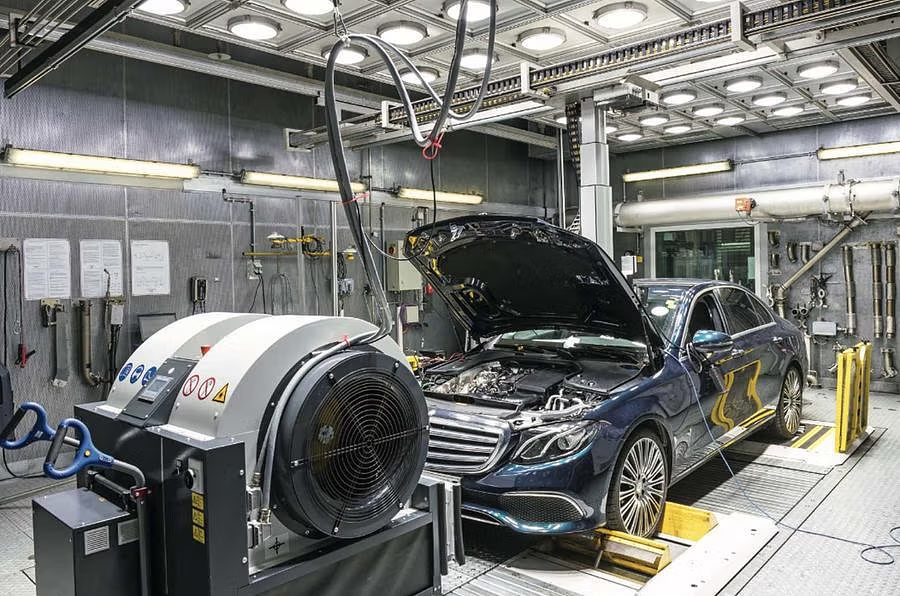New car CO2 emissions hit highest point since 2013
Department for Transport data reveals average CO2 emissions of new cars sold reached 128g/km in September, with diesel decline blamed
The average CO2 emissions of new cars has reached the highest point since July 2013, data from the Department of Transport reveals.
The data, taken from the quoted CO2 emissions of each new car registered in the UK, shows that the average figure for September reached 128.3g/km. This reflects starkly with the lowest figure on record of 119.2g/km, recorded in August 2016.
The rise has been attributed to the sharp decline in diesel sales in the UK, which fell by 31% across last year. Buyers have been switching to petrol models, which generally emit higher levels of CO2 than their diesel counterparts.
Further blame can be attributed to the new WLTP emissions regulations, which are gradually forcing many car makers to increase the published CO2 figures for their vehicles.
It’s especially significant given that the market's new cars are, on average, 12.6% more efficient than their predecessors, according to the SMMT. It also comes despite an increase in the number of ultra-low-emission vehicles registered, with plug-in hybrids and EVs making up over 3% of the UK’s car market.

Previous figures released by the Society of Motor Manufacturers and Traders (SMMT) revealed that average CO2 emissions for new cars registered in 2017 rose to 121.0g/km, up from 120.1g/km in 2016.
The rise, which marked the end of 20 years of consistent decline and came after a record low CO2 output was recorded in 2016, is directly linked to the collapse in diesel sales in the UK market in 2017. EU law makers recently voted for car manufacturers to reduce CO2 emissions from current levels by 40% by 2030, which is looking increasingly difficult to achieve.
Diesel deaths - complete list of 2018's axed models
Government legislation is blamed by SMMT chief executive Mike Hawes, who said: “The industry shares government’s vision of a low-carbon future and is investing to get us there – but we can’t do it overnight; nor can we do it alone.
“The anti-diesel agenda has set back progress on climate change, while electric vehicle demand remains disappointingly low amid consumer concerns around charging infrastructure availability and affordability.”
Last year, the government dealt a double blow to diesel, announcing that all-new non-electrified petrol and diesel car sales will be halted from 2040 onwards before confirming a tax hike for diesel cars in the autumn budget.
This anti-diesel legislation and the messages that accompanied them prompted a fall in consumer confidence. The knock-on effect has seen manufacturers begin to withdraw diesels from their line-ups. Recently, Porsche stopped production of its current diesel models, and Fiat Chrysler revealed intentions to abandon diesel altogether by 2022.
Despite rapid growth in EV and hybrid car demand, total volume for the segment was still far too small to offset the drop in diesel demand. Demand for plug-in vehicles rose by 34.8% last year, yet zero-emission pure-electric car sales still accounted for just 13,500 vehicles – a tiny proportion of the 2.5 million total car sales across the year.
Hawes said this illustrated the need for further investment in cleaner combustion engine technology. He cited business fleets, which were previously seen as the biggest demand for diesel cars, as relevant places for diesel to still exist in large numbers.
“To accelerate fleet renewal, motorists must have the confidence to invest in the cleanest cars for their needs – however they are powered,” he said. “A consistent approach to incentives and tax and greater investment in charging infrastructure will be critical.
“Now, more than ever, we need a strategy that allows manufacturers time to invest, innovate and sell competitively, and which gives consumers every incentive to adapt.”
RELATED ARTICLES
Autoliv Plans JV for Advanced Safety Electronics With China’s HSAE
The new joint venture, which is to be located strategically near Shanghai and close to several existing Autoliv sites in...
JLR to Restart Production Over a Month After September Hacking
Manufacturing operations at the Tata Group-owned British luxury car and SUV manufacturer were shut down following a cybe...
BYD UK Sales Jump 880% in September to 11,271 units
Sales record sets the UK apart as the largest international market for BYD outside of China for the first time. The Seal...






 09 Nov 2018
09 Nov 2018
 7184 Views
7184 Views





 Ajit Dalvi
Ajit Dalvi




